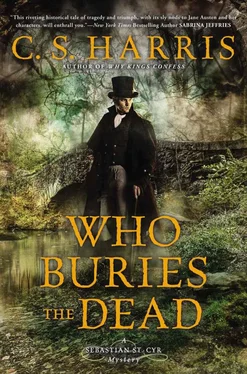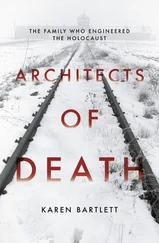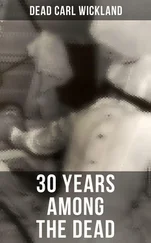C. Harris - Who Buries the Dead
Здесь есть возможность читать онлайн «C. Harris - Who Buries the Dead» весь текст электронной книги совершенно бесплатно (целиком полную версию без сокращений). В некоторых случаях можно слушать аудио, скачать через торрент в формате fb2 и присутствует краткое содержание. Год выпуска: 2015, Издательство: Penguin Publishing Group, Жанр: Исторический детектив, на английском языке. Описание произведения, (предисловие) а так же отзывы посетителей доступны на портале библиотеки ЛибКат.
- Название:Who Buries the Dead
- Автор:
- Издательство:Penguin Publishing Group
- Жанр:
- Год:2015
- ISBN:нет данных
- Рейтинг книги:4 / 5. Голосов: 1
-
Избранное:Добавить в избранное
- Отзывы:
-
Ваша оценка:
- 80
- 1
- 2
- 3
- 4
- 5
Who Buries the Dead: краткое содержание, описание и аннотация
Предлагаем к чтению аннотацию, описание, краткое содержание или предисловие (зависит от того, что написал сам автор книги «Who Buries the Dead»). Если вы не нашли необходимую информацию о книге — напишите в комментариях, мы постараемся отыскать её.
Who Buries the Dead — читать онлайн бесплатно полную книгу (весь текст) целиком
Ниже представлен текст книги, разбитый по страницам. Система сохранения места последней прочитанной страницы, позволяет с удобством читать онлайн бесплатно книгу «Who Buries the Dead», без необходимости каждый раз заново искать на чём Вы остановились. Поставьте закладку, и сможете в любой момент перейти на страницу, на которой закончили чтение.
Интервал:
Закладка:
Hero studied her hostess’s even, carefully composed features and found herself wondering about this woman’s own romantic past. How much of the author’s own life experiences, Hero wondered, had made their way into her books?
“Yet she won’t be poor,” said Hero, choosing her words carefully. “Stanley Preston’s death means that Anne is now free to marry her impoverished young captain and keep her inheritance from her father.”
Miss Austen raised her gaze to Hero’s face. “I may have questioned Captain Wyeth’s sincerity, but I never would have believed him capable of-of-”
“Murder?”
“Especially one of such savagery.”
“He’s spent the last six years at war. That sort of experience can brutalize some men.”
“Most men, I should think,” said Miss Austen quietly.
Hero took a sip of her tea and shifted her gaze to where the old gardener, Jenkins, was forking over the earth of one of the parterres. “I understand Miss Preston attended Lady Farningham’s musical evening in your company.”
“She did, yes. My cousin had hoped to be able to go with her, but I’m afraid Eliza rarely leaves her room these days.”
“Did you know Captain Wyeth would be there?”
Miss Austen expelled her breath in a kind of a sigh. “No. Although I realize in retrospect that Anne obviously knew it. No simple musical evening could have inspired the level of excitement and anticipation she displayed. Unfortunately, she and the captain had words during the break, and he left almost immediately afterward.”
“They quarreled?”
“Yes, although I couldn’t tell you the reason for the disagreement. Anne refused to discuss it, and I had no desire to press her. We ourselves left not long afterward. She pled a sick headache and wanted to go home.”
“So she was home before ten?” A good half hour before her father’s murder, thought Hero, although she didn’t say it.
“Yes.”
“Interesting. I don’t believe that was made clear to anyone.”
A vaguely troubled look came over Miss Austen’s features. But she simply picked up the plate of biscuits from the tray and held it out to Hero. “Please, have some.”
“Thank you.”
“That’s an interesting necklace you’re wearing,” said Miss Austen, adroitly shifting to a safer topic of conversation as she set the plate between them. “It looks quite ancient.”
Hero touched her fingertips to the bluestone and silver triskelion at her neck. “I believe it is, yes. Although I must confess, I don’t know its history.”
“I saw something quite like it once while visiting friends near Ludlow. We were invited to dine one evening at Northcott Abbey, and Lady Seaton showed us the portrait gallery. There was a painting of a woman wearing an almost identical piece. I remember it because the family legend attached to it caught my imagination. According to the story, the necklace had the power to choose its next owner by growing warm to that person’s touch. It seems Lord Seaton’s great-great-grandmother was a natural daughter of James II, and the necklace was his gift to her on her wedding day.”
Hero was suddenly, intensely conscious of the pendant lying warm against the flesh of her throat, and of the inscribed initials entwined on its back.
A.C. and J.S.
“There was some tragedy involved,” Miss Austen was saying, “although I must confess I don’t recall all the details. I believe she married a Scottish lord who treated her abysmally after her father the King lost his throne. In fiction, we can mold reality to our will and make all rich men as worthy and handsome as anyone could wish. But life is unfortunately far less tidy. Wealthy men are often silly, insufferable bores-or worse-while far too many handsome men with good hearts have everything to recommend them except a comfortable independence.”
“So is Captain Wyeth a particularly vicious version of George Wickham, or a sadly impoverished Mr. Darcy?”
Miss Austen’s worried gaze met Hero’s. “I wish I knew.”
Hero was perched halfway up the library ladder, a copy of Debrett’s Peerage open in her hands, when Devlin walked into the room.
“What are you doing?” he asked.
“Trying to find the name of the Scottish lord who married one of James II’s natural daughters,” said Hero, still flipping through the pages.
“Why?”
“I saw Miss Austen this afternoon.”
“And?”
“You were right; she does indeed worry that Captain Wyeth might not be as amiable or openhearted as he takes pains to appear. She also tells me that Anne and her captain quarreled halfway through Lady Farningham’s musical evening, at which point Anne pled a sick headache and went home. Before ten.”
She looked up then to find him frowning. He said, “I don’t like the sound of that.”
“No; I didn’t think you would.”
He nodded to the book in her hands. “What does James II’s natural daughter have to do with anything?”
“She doesn’t. But Miss Austen was intrigued by my necklace. She said it reminded her of a piece she’d once seen in a portrait of a woman reputed to be the daughter of James Stuart by one of his mistresses. Which is fascinating because on the back of this necklace are two sets of entwined initials-”
“A.C. and J.S.”
Hero stared at him. “How did you know?”
He turned away and went to where the brandy stood warming by the fire. She could see the rigid set to his shoulders, hear the tension in his voice. “The necklace once belonged to my mother,” he said, easing the stopper from the decanter. “She was wearing it when she was lost at sea the summer I was eleven.”
Hero felt a yawing ache open up inside her, the ache she always felt when she thought of the losses suffered by the boy he’d once been. In one hot, unforgettable summer, he had lost both his older brother Cecil and his mother.
There was a portrait of Sophia, the Countess of Hendon, that hung over the fireplace in the drawing room, and Hero often found herself studying it. The Countess had been a beautiful woman, her hair the color of gold guineas, her features exquisitely molded, her eyes clear and sparkling with intelligence and humor and a wild kind of thirst, as if she yearned for something missing in her life. And then one sunny August day, she’d sailed away from Brighton on a friend’s yacht for what was supposed to be a few hours’ pleasure cruise, and she’d never returned.
Lost at sea, they told the world-told Sebastian, even though he refused to believe it. Day after day he stood on the cliffs, looking out to sea, waiting for her to return, convinced that she couldn’t be dead. Convinced that if she were dead, he’d know it-feel it. In time, he had come to accept that they told the truth, only to learn as a man grown that it was all lies. She had simply left the Earl-the man he had falsely believed to be his father.
Left him .
Sebastian had shared with Hero many of his darkest, most painful secrets. But the truth about his mother-that she still lived-Hero had learned only from Jarvis. And she had never told Devlin what she knew.
Now she watched him splash brandy into his glass and said softly, “Except that she wasn’t really lost at sea, was she, Devlin?”
He looked at her over his shoulder, the decanter held forgotten in his hand, his face a mask of control. “Jarvis told you?”
“Yes.”
“Did he also tell you that she ran off to Venice with her latest lover-a handsome young poet a good ten years her junior?”
“No.” Hero set aside the book and stepped off the ladder, her gaze never leaving his face. “How did my father come to have the necklace?”
“It reappeared two years ago, around the neck of Guinevere Anglessey’s dead body.”
Читать дальшеИнтервал:
Закладка:
Похожие книги на «Who Buries the Dead»
Представляем Вашему вниманию похожие книги на «Who Buries the Dead» списком для выбора. Мы отобрали схожую по названию и смыслу литературу в надежде предоставить читателям больше вариантов отыскать новые, интересные, ещё непрочитанные произведения.
Обсуждение, отзывы о книге «Who Buries the Dead» и просто собственные мнения читателей. Оставьте ваши комментарии, напишите, что Вы думаете о произведении, его смысле или главных героях. Укажите что конкретно понравилось, а что нет, и почему Вы так считаете.












